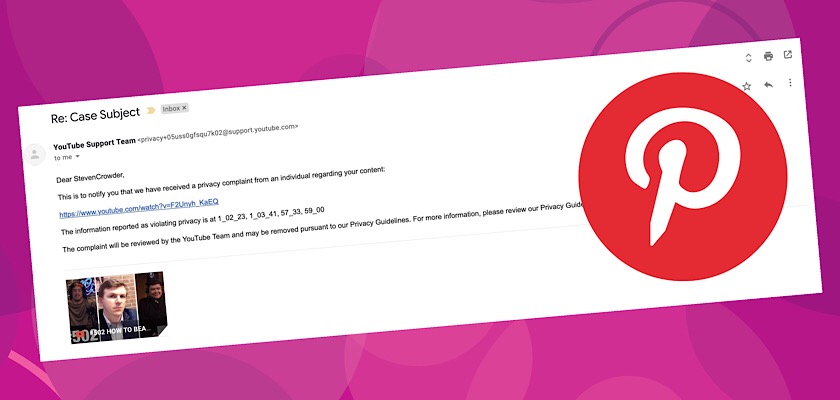Project Veritas attorneys have sent a cease and desist letter to Pinterest, regarding the visual search engine’s alleged efforts to suppress a recent investigative report which exposed Pinterest’s blatant censorship of Christian, conservative, and pro-life content. The claims in this cease and desist letter suggest that Pinterest was behind the takedowns of Project Veritas’s original investigative report as well as other tweets and videos covering the report. However, Pinterest’s alleged efforts to censor this report seem to have backfired and have turned it into an even much bigger story.
James O’Keefe, the head of Project Veritas, published the cease and desist letter on Twitter and said that Project Veritas will continue to report the news, even if Pinterest doesn’t like it:
Click here to display content from X.
Learn more in X’s privacy policy.
The cease and desist letter alleges that:
- Pinterest has been contacting social media platforms and falsely claiming that Project Veritas’s report on Pinterest’s censorship constituted “malicious use“ due to “doxing, dogpiling, brigading, spamming, or scamming.“
- These false claims from Pinterest have resulted in Project Veritas’s original investigative report being taken down and third parties commenting on the investigative report being censored
This indicates that Pinterest is behind the privacy complaints which led to the takedown of Project Veritas’s tweet promoting its investigative report, Project Veritas’s original video on YouTube, and independent journalist Tim Pool’s video covering this investigative report. It also suggests that Pinterest sent a privacy complaint to YouTube when comedian Steven Crowder had O’Keefe on his show to discuss this investigative report.
https://twitter.com/scrowder/status/1139623706966331393
If Pinterest did send these privacy complaints and attempt to censor Project Veritas’ investigative report, it appears to have backfired. The attention on the suppression of Project Veritas’ original investigative report turned it into a much bigger story and led to it dominating news cycles for days after the original report was published.
The remainder of the letter strongly refutes Pinterest’s supposed claims that Project Veritas doxed Pinterest employees in its investigative report and says that naming Pinterest’s Law Enforcement and Government Operations Program Manager, who is the subject of many of the privacy complaints sent to social media platforms, is news about an item of public interest and protected by the First Amendment.
The letter also claims that Pinterest’s efforts to censor discussions of Project Veritas’ investigative report has damaged Project Veritas’ ability to publish the news and is a form of defamation which will not go unanswered.
Project Veritas is requesting that Pinterest:
- Issues retraction statements to all third-party publishers and social media platforms that it made false claims about Project Veritas to within three days.
- Publicly correct its misstatements by posting a conspicuous notice on the Pinterest website within three days.
If Pinterest chooses not to retract its statements, Project Veritas says it will vigorously pursue any and all legal remedies available to it.
Whichever option Pinterest chooses, it’s likely that it will once again have the Streisand effect and bring even more attention to Project Veritas’s original investigative report into Pinterest’s censorship practices over the coming days.








